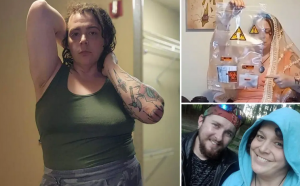The Oregon Court of Appeals on Thursday threw out the conviction of a woman arrested for doing little more than walking down 82nd Avenue and glancing over her shoulder.
These actions has been considered sufficient evidence of prostitution to justify her arrest.
The ruling underscores the thin line between smart police work and trampling of citizen’s rights.

Cracking down on prostitution along 82nd Avenue has long been a focus of Portland police. In this 2008 file photo, police question a suspected john after he picked up a teen-age girl along Southeast 82nd Avenue. (Jamie Francis/The Oregonian)
The case drew applause from defense attorneys who say police often overstep their bounds in stopping and arresting law-abiding residents in their quest to fight prostitution.
Portland police, however, testified that the defendant in this case — Sharita J. Martin — exhibited many of the tell-tale signs of women working as prostitutes.
On March 8, 2010, officer Heath Kula watched Martin walk along 82nd Avenue from 9:45 to 10:50 p.m. as she repeatedly looked over her shoulder at passing traffic. She wore high-heeled boots, a mini-skirt and a puffy jacket.
At one point, she took a step or two toward a pick-up truck that had pulled aside, but she turned away without talking to the driver. The officer testified he believed that Martin saw him and his unmarked patrol car then.
A short while later, the officer saw Martin talk to a known prostitute for 30 to 45 seconds.
The officer also discovered from a records check that Martin, whom other officers recognized by name, had been arrested seven or eight times under suspicion of prostitution-related activity from 2004 to 2006. But she hadn’t been arrested for prostitution in the four years since.
The officer then arrested Martin under suspicion of unlawful prostitution procurement activity and attempted prostitution.






Profiling is another evil of prohibition. Since when should anyone get arrested based on what they wear? This kind of policing has resulted in the arrests of many non-sex-workers who just happened to be in the wrong place at the wrong time dressed the wrong way. As a result, even if they’re cut loose once the mistake is realized, they will then have arrest records for prostitution haunting them for the rest of their lives.
The only solution is to take such judgment calls out of the hands of law enforcement.